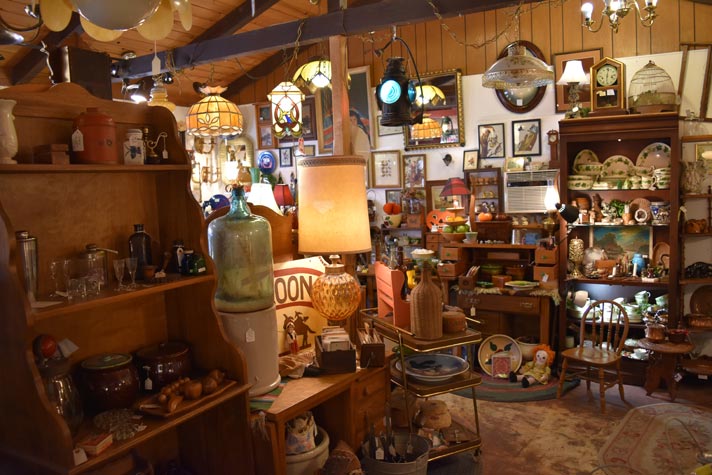Speaking of Antiquing – November 2017
I came across a recent article geared toward baby boomers, that states that nobody wants to buy your parents things any more. If that were true, then we would be out of business in a day!
People come in or call the shop all the time wanting to sell items from estates that need to be downsized. While we are tempted and can purchase some of it, we cannot buy all of it. We must be picky because of limited space and what we think will sell. Perhaps we should change our name from “Pickety Place” to “Picky Place!”
Having gone through the complete liquidation of my in-laws’ and parents’ estate accumulations, I discovered that there IS a market for almost everything…almost!
It was their life, their tastes, their things.. and now we must deal with it. Often, the task is much too overwhelming, and if we do not live in the same town or state, we have little time to deal with the magnitude, so we don’t. We haul it off to Goodwill or the dump, we have an impromptu yard sale, perhaps hoping a nephew or niece will want the tools and china.
My dad used to say, “You can have it when I am done with it,” and we knew that meant upon his death. That is how it is with most everyone and we respect our parent’s belongings, their cherished items, their memories, their history.
I like to stress in my articles that “If you have it, use it.” I say this in order to encourage people to make their cherished items the family’s cherished items. Talk about what it is, where it came from, whose it was, why you have it and why you love it. Bring it out, let the young ones touch it, use it, become familiar with it, sit on it, walk on it, eat off it, drink out of it, put flowers in it.
What is in those drawers, the jewel box, the closet, the attic, the garage? If we diligently commit to cleaning out, throwing out, and giving out, I know our children will have an easier time of it.
Think about gifting some of the heirlooms this holiday season; help your family think about and plan for the who, what, and where of it all.
Research ahead of time what can be donated and what can be sold. Find reputable dealers and charities to be called upon to help with the process. You will be pleased to find that the landfill is not the only answer to the problem.

 Margaret Barns is co-owner of Pickety Place Antiques & Collectibles located at 130 N. 4th Street in Jacksonville. LIKE them on
Margaret Barns is co-owner of Pickety Place Antiques & Collectibles located at 130 N. 4th Street in Jacksonville. LIKE them on
Hi Lady! Having fun yet????? Sure miss Jacksonville but not Medford madness. This small Myrtle Creek town is so sweet. I have never forgotten a cane Dale had and showed me…kinda’ a ball/rubic cube type head but just straight stick…still around? Sellable? Just held the sweet cap he gave me with his Dad’s dove pin in it. I can hardly wait for one of his hugs again soon. Blessings…